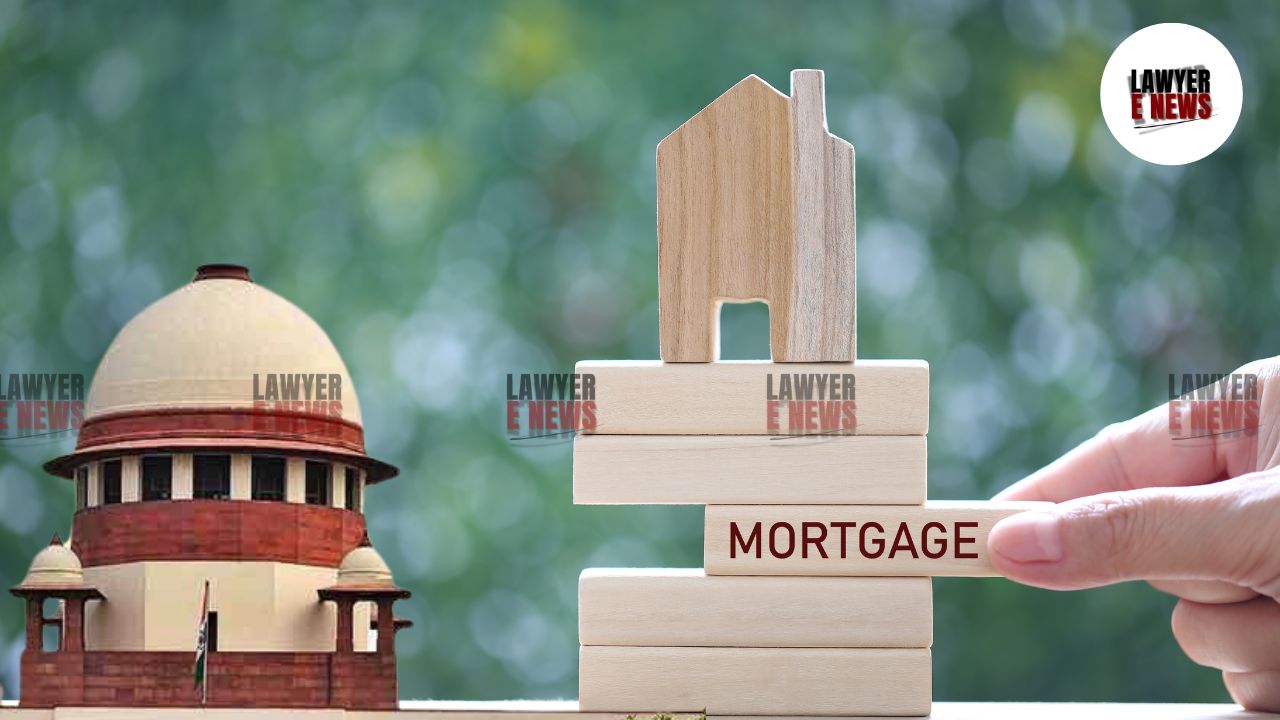-
by Admin
15 February 2026 2:36 AM



In a significant judgment, the Supreme Court of India has reinstated a mortgage decree issued by the Madras High Court’s Single Judge, thereby overturning the Division Bench's decision that had dismissed the claim. The case revolved around a disputed loan secured by a mortgage, where the appellant, A.B. Govardhan, sought to enforce the mortgage after the respondent, P. Ragothaman, allegedly defaulted on the loan. The Supreme Court upheld the original mortgage but reduced the applicable interest rate from 36% to 12% per annum.
The dispute originated in 1995 when the respondent, engaged in the building materials business, sought a loan of Rs. 10,00,000 from the appellant. The loan was secured by two registered mortgages amounting to Rs. 1,50,000 and four promissory notes for Rs. 8,50,000. Despite promises to repay, the respondent defaulted, leading to a settlement agreement in 2000, where the respondent handed over the title deeds of a property as security. When the respondent failed to execute a sale deed or repay the remaining Rs. 2,00,000, the appellant filed a suit seeking a mortgage decree.
Mortgage Creation and Validity: The Single Judge of the Madras High Court initially ruled in favor of the appellant, recognizing the agreement as a valid mortgage by deposit of title deeds under Section 58(f) of the Transfer of Property Act, 1882. However, the Division Bench overturned this decision, citing a lack of clear evidence to prove the existence of a mortgage.
The Supreme Court, upon reviewing the case, disagreed with the Division Bench's findings. It noted that the Agreement, although disputed by the respondent on grounds of coercion, was voluntarily signed, and no evidence was provided to support the claim of coercion. The Court emphasized that under Section 58(f), a mortgage by deposit of title deeds does not require a formal mortgage deed, and the mere deposit of title deeds with the intent to secure a loan suffices to create a valid mortgage.
The judgment states, "The Agreement only records what has happened and does not create or extinguish rights or liabilities. It would, therefore, be covered by Section 58(f) of the Transfer of Property Act, and the plea of coercion raised by the respondent cannot stand without substantive evidence."
Interest Rate Adjustment: While restoring the mortgage decree, the Supreme Court deemed the original interest rate of 36% per annum as excessive. It reduced the rate to 12% per annum, aligning it with equitable principles.
The Supreme Court's judgment reaffirms the legal principles governing mortgages by deposit of title deeds, particularly under Section 58(f) of the Transfer of Property Act. By reinstating the original decree with modifications, the Court not only upheld the appellant's rights but also imposed a reasonable interest rate, ensuring justice for both parties. This decision underscores the importance of clear evidence and the correct application of legal provisions in mortgage disputes.
Date of Decision: August 29, 2024
A.B. Govardhan vs. P. Ragothaman
